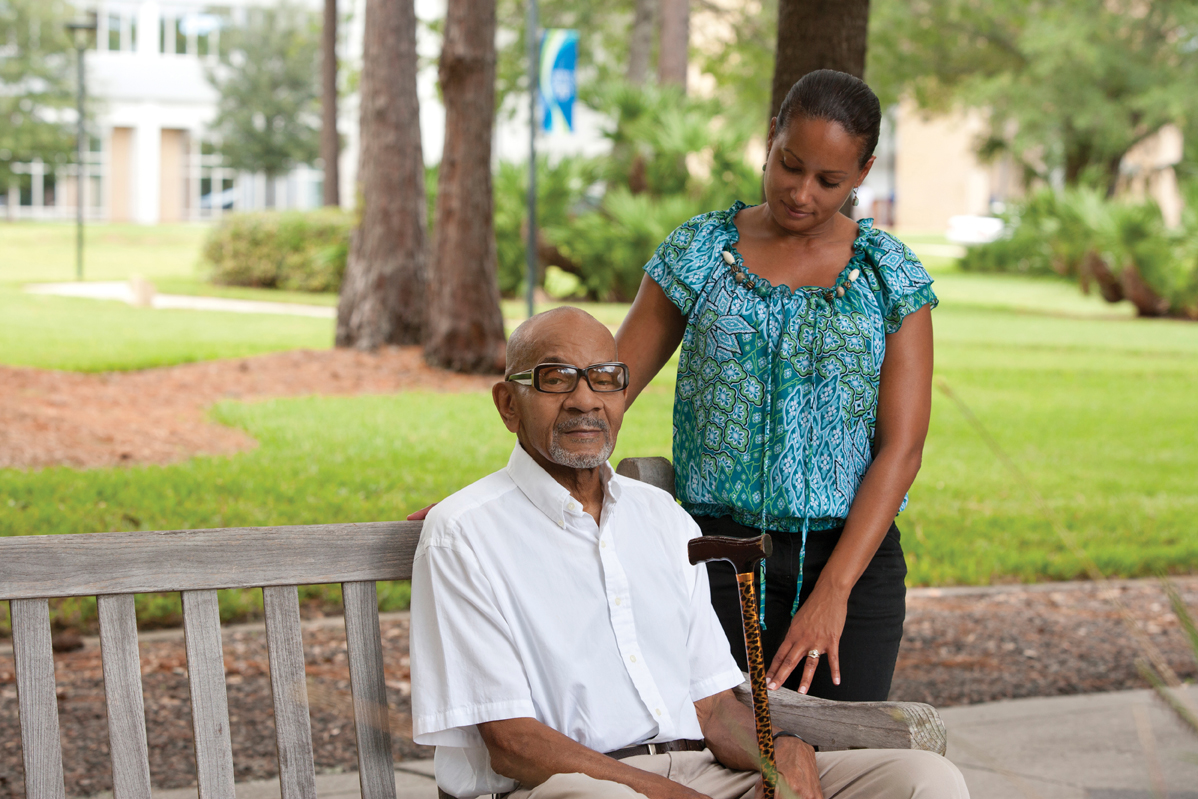By learning and sharing the F.A.S.T. warning signs, you just might save a life from stroke
World Stroke Day is celebrated globally on Oct. 29. This year the American Stroke Association, a division of the American Heart Association, is highlighting the importance of acting F.A.S.T. and stroke prevention.
Strokes can happen to anyone, at any age. In fact, globally about one in four adults over the age of 25 will have a stroke in their lifetime. Even so, most adults in the U.S. don’t know the F.A.S.T warning signs of a stroke, and that stroke is largely treatable if you call 9-1-1 as soon as you recognize the symptoms.
Learn how to spot a stroke F.A.S.T.
If you see Face drooping, Arm weakness or Speech difficulty, it’s Time to call 9-1-1.
- Face Drooping: Does one side of the face droop or is it numb? Ask the person to smile. Is the person’s smile uneven?
- Arm Weakness: Is one arm weak or numb? Ask the person to raise both arms. Does one arm drift downward?
- Speech: Is speech slurred? Is the person unable to speak or hard to understand? Ask the person to repeat a simple sentence like “The sky is blue.”
- Time to call 9-1-1: If someone shows any of these symptoms, even if the symptoms go away, call 9-1-1 and get to a hospital immediately. Check the time so you’ll know when the first symptoms appeared.

If someone is having a stroke, they must get medical attention right away. Immediate treatment may minimize the long-term effects of a stroke and even prevent death.
Help reduce your stroke risk
Stroke is a leading cause of death and severe, long-term disability. In Connecticut over 1,500 residents die from stroke each year.
A large majority of strokes can be prevented through education and lifestyle changes such as moving more, eating healthy, getting healthy sleep, quitting smoking and managing blood pressure.
“One of the hardest things I see every day as a stroke doctor is how devastating the consequences of high blood pressure can be on the body, especially the brain,” said Yale Medicine neurologist Dr. Rachel Forman, of Yale New Haven Health; and a Connecticut American Heart Association Board Member. “Many people live their entire lives feeling ‘healthy,’ so they do not check their blood pressure or take their blood pressure medications. Unfortunately, high blood pressure is the single strongest risk factor for stroke, often causing devastating and irreversible disability.”
Most people who have had a first stroke also had high blood pressure. High blood pressure damages arteries throughout the body. It creates conditions that can make arteries burst or clog easily. Weakened or blocked arteries in the brain create a much higher risk for stroke. Measuring your blood pressure is the only way to know if you have it. Controlling high blood pressure can help prevent major health problems. This is why managing high blood pressure is critical to reducing your risk for stroke.
“I recall a young father who came to the hospital with a large stroke due to years of uncontrolled blood pressure and now he will likely never walk again due to weakness involving half of his body,” said Dr. Forman. “If he knew he had high blood pressure and took the appropriate medications and lifestyle measures, he likely would not have had a stroke. Strokes are often preventable by seeing a healthcare professional and having your blood pressure checked and managed appropriately. I sincerely urge everyone to take charge of their health.”
Make sure you “Know Your Numbers” – four key personal health numbers help determine risk for stroke: total cholesterol, blood pressure, blood sugar and body mass index.
It’s also important to learn your family health history and then talk to your doctor about lowering your personal risk for stroke.
Nearly 1 in 4 strokes occur in people who have had a previous stroke, in some instances because they don’t know what caused the first stroke. Testing to identify a cause and additional stroke risk factors can help you and your health care professional develop a plan to keep you moving forward after a stroke and prevent another one.
On October 29, for World Stroke Day, join the American Stroke Association in raising awareness of stroke, its symptoms and supporting stroke survivors. Learn more at Stroke.org/WorldStrokeDay.
